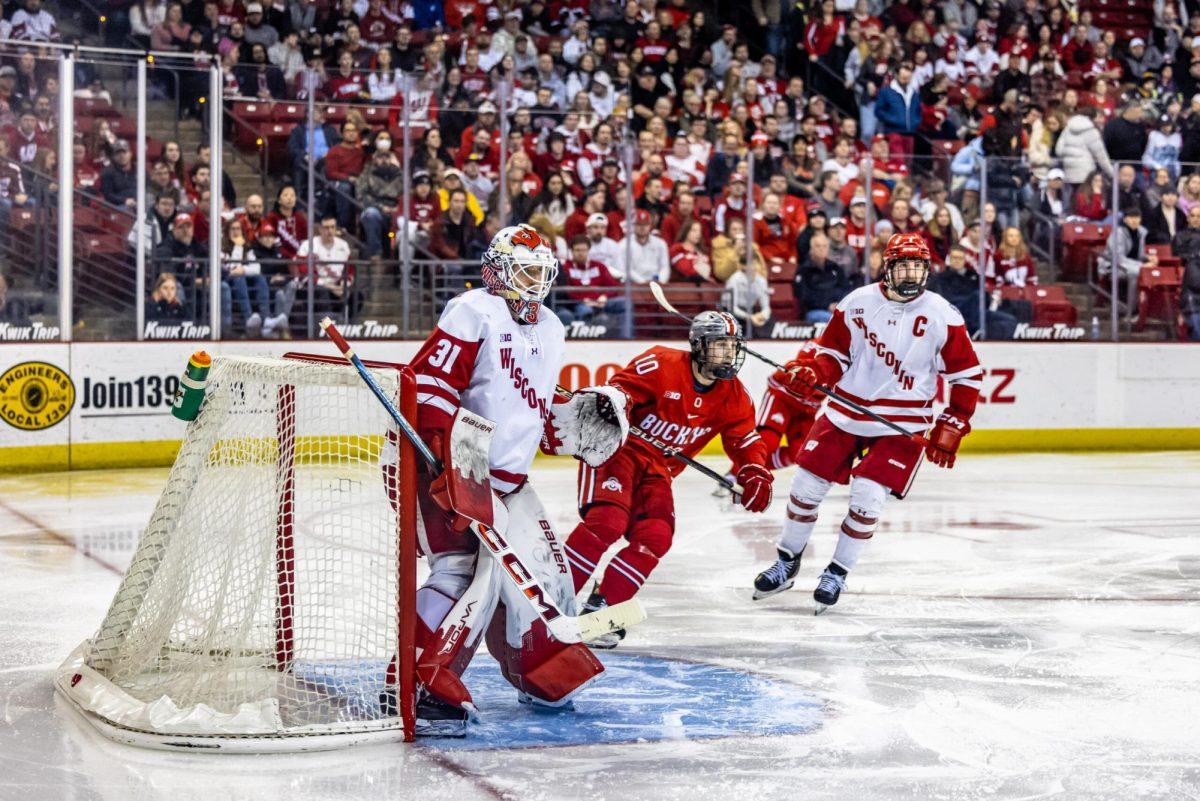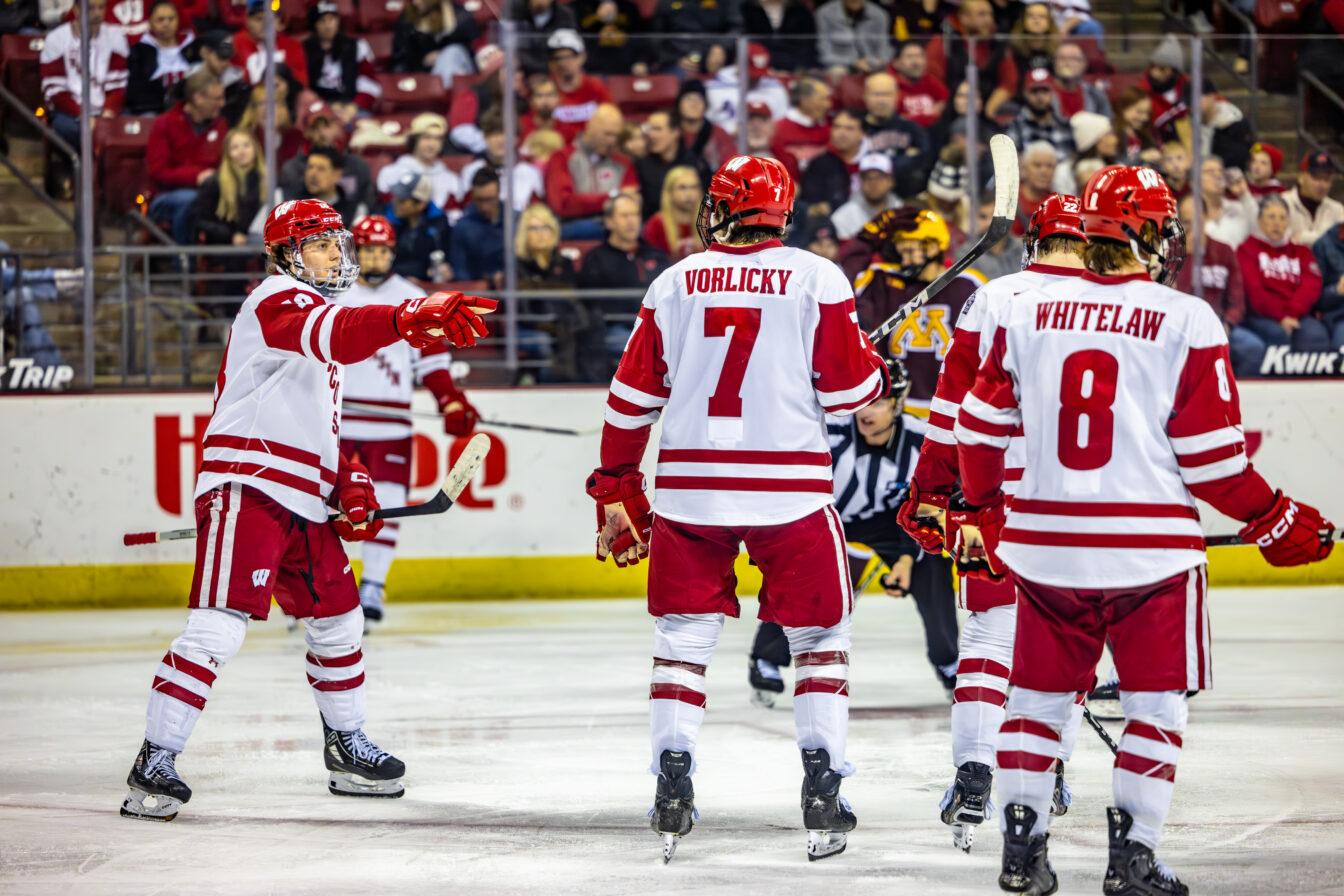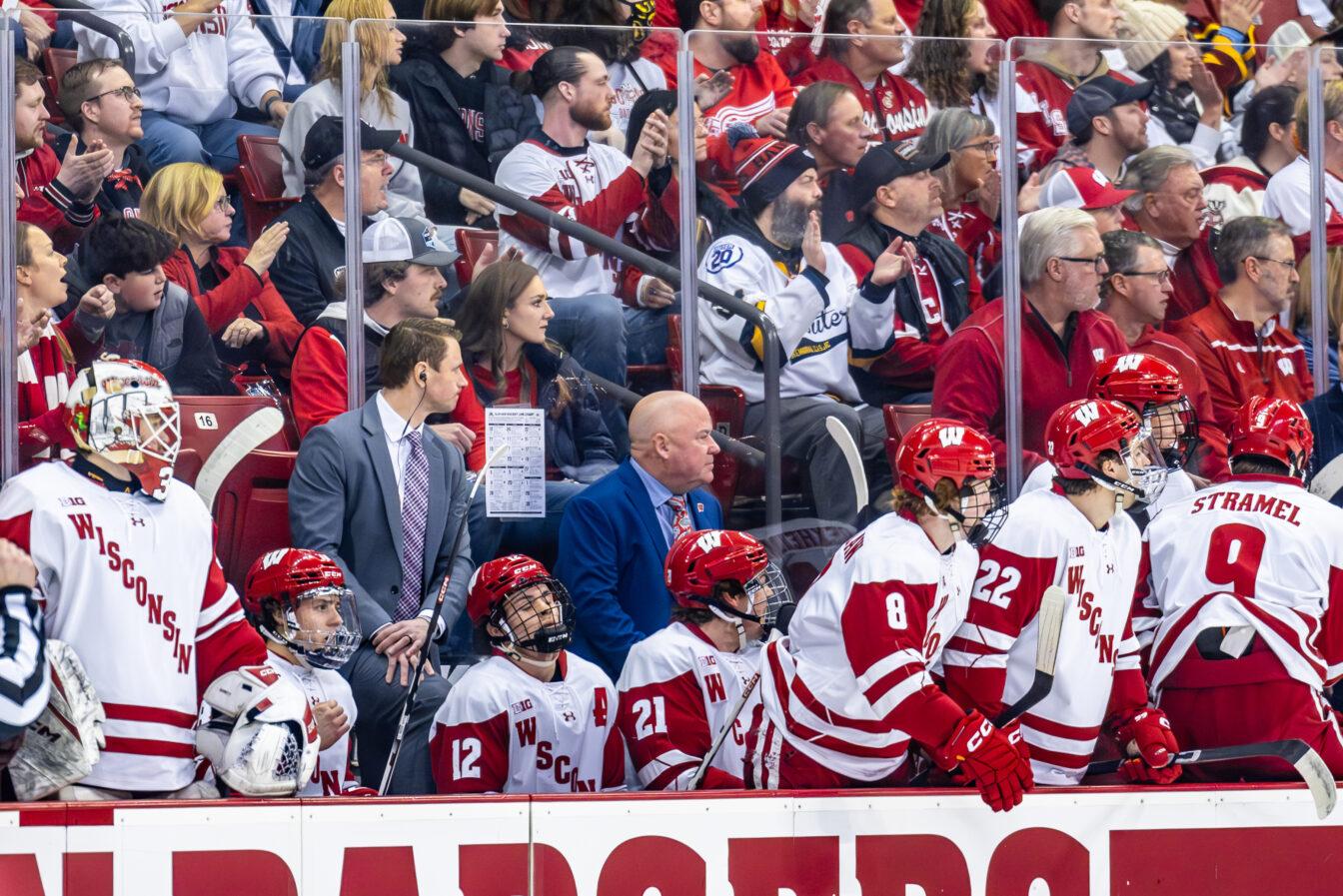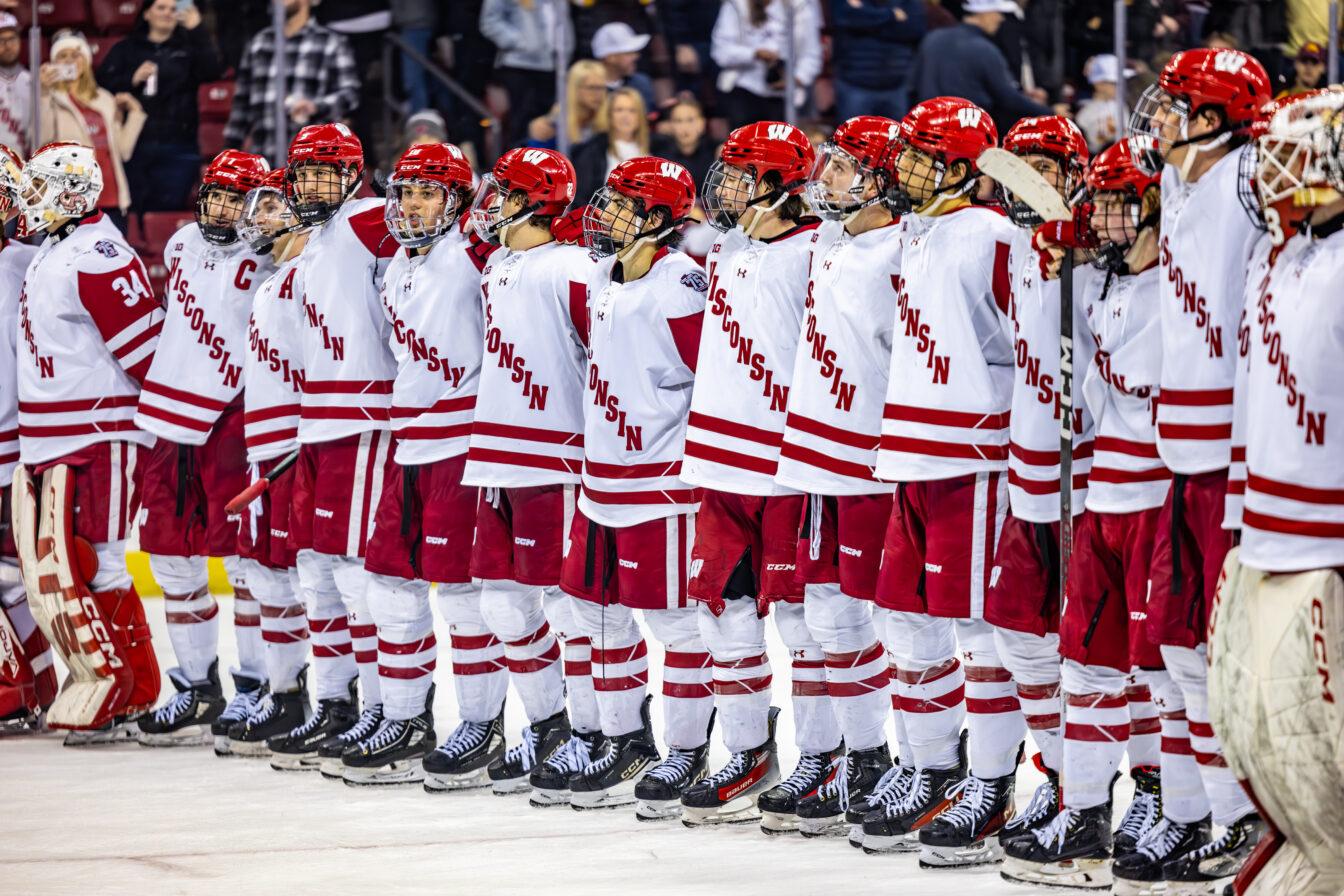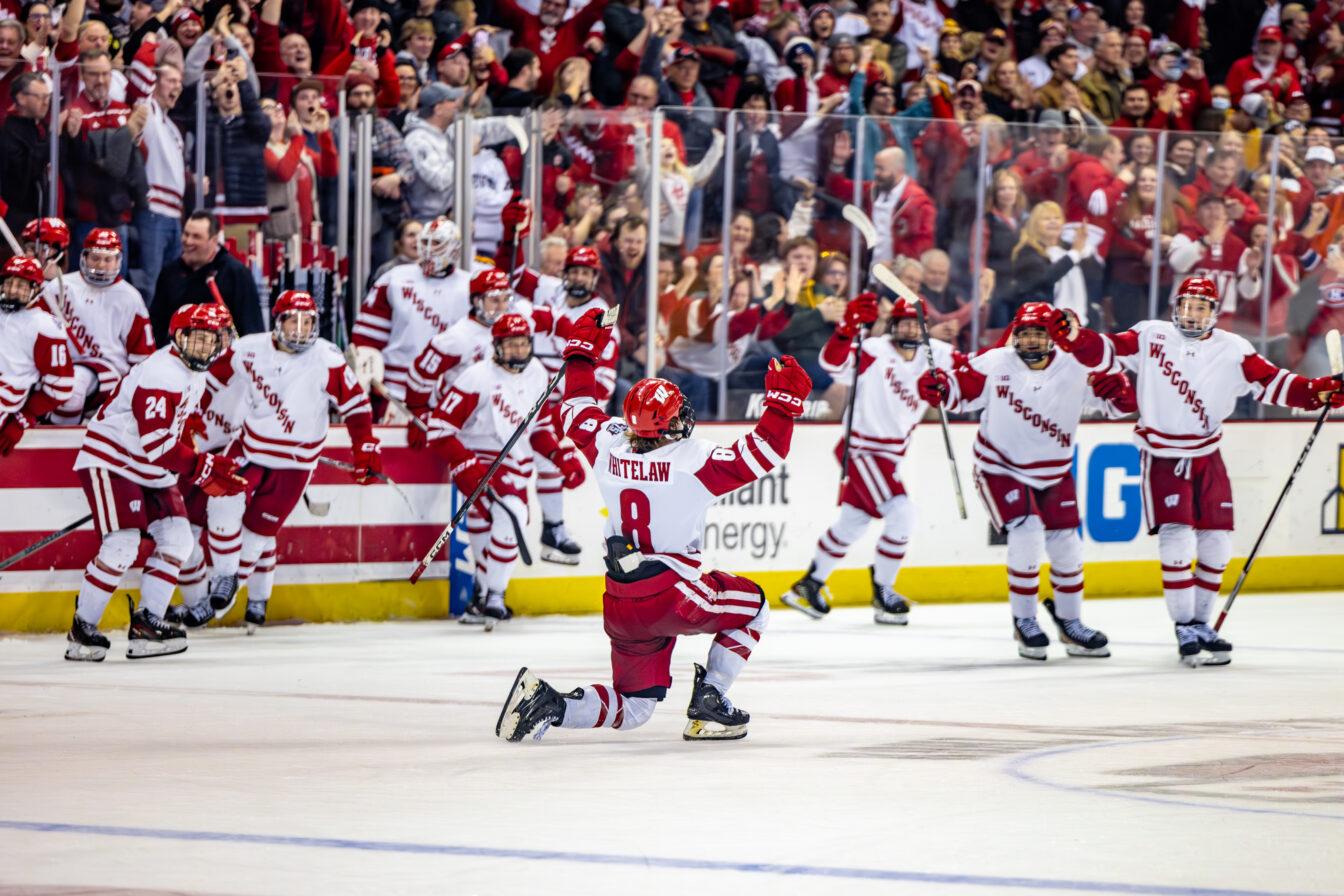
Before getting two late power play goals last Saturday, the Wisconsin men’s hockey team was mired in a 3-for-36 stretch with the man advantage.
And the Badgers aren’t hiding from the fact.
“It’s been tough; it’s been tough,” sophomore forward Craig Smith said. “Teams are starting to get used to what we’re doing and what we’re trying to do.”
“I don’t think [the power play] is where we want it to be,” sophomore defenseman Justin Schultz said.
“We haven’t produced as much as we’d like,” freshman Mark Zengerle added.
They’re not the most confident endorsements of the team’s play, but they are honest assessments.
Wisconsin still owns the top power play unit in the Western Collegiate Hockey Association, and its 23.9 percent mark is fourth in Division I. UW’s 39 power play goals are second most in the nation as well.
But the bulk of those goals came early in the season, when the Badgers seemingly couldn’t find a way to score unless they were on the power play.
While the ratio is evening out – about 36 percent of UW’s goals have come on the man advantage, down from an alarming 40 percent in December – it’s been just as much about the power play faltering as it has the even-strength scoring increasing.
In last Friday’s 4-1 loss to Nebraska-Omaha, Wisconsin went 0-5 on the power play, looking out of rhythm the whole night. The Badgers attributed some of the struggles – and UNO’s successes – to the smaller ice sheet at the Qwest Center, which gave the Mavericks less space to cover defensively.
“If there was any loose puck, they were on it; they were on you. I don’t remember too many times where I had the puck and nobody was on me,” Smith said. “They were really pressuring tough, pressuring hard. It’s tough to make plays when they’re coming at you like that.”
However, while the goals aren’t coming as frequently, the Badgers are still getting scoring opportunities with the man advantage. They’re just not going in as frequently.
“It’s not like we weren’t getting chances,” Smith said. “I think on the power play, that’s one of the biggest things, if you can get yourself a lot of good scoring chances, I think you’re doing your job. If they’re not going in, they’re just not going in.”
Part of the reason teams can go into slumps on the power play is the adjustments opponents make as the season progresses. With video of other teams readily available, it’s easy to pick up tendencies of opposing special teams units.
Early in the season, Zengerle was collecting assists at a remarkable pace, owing much of it to success on the power play. Zengerle would work near the corner on the goal line and using his vision, was able to find open men more often than not.
“Teams are watching video of us,” he said. “I think one thing is the defenseman’s kind of getting his stick out, blocking out the passing lane a bit, being proactive in his duty there.”
Zengerle has needed to find other ways to contribute from other spots on the ice as a result of adjustments. The Badgers have used Smith off the wall more often in attempts to draw forwards in and open up other areas of the ice – such as the right circle, where Jake Gardiner this year and Brendan Smith last year were able to connect on one-timers.
Head coach Mike Eaves attributed some of the struggles on the atmosphere in Omaha.
“You know, there’s a tendency in big games and that to lose some of that poise and confidence. We call it P&C,” he said. “That’s why; that’s one of the lessons that can come out of that series before we get into the playoffs, because the playoffs tend to raise that level. And we played in a playoff type of atmosphere, and we had some great chances.”
The team consensus is that the two power play goals in the third period of Saturday’s 4-3 loss could be the tipping point that gets the unit back on track.
And while the Badgers admit to struggling with the man advantage, there’s no lack of confidence.
“It is frustrating because we’ve got a good group that works very hard to get the puck, and we’re very skilled with it when we get it,” Smith said. “There’s not too many times where if we get an open shot, that it’s not going to go in.”
With just three series remaining in the regular season, there’s a limited amount of time to get the power play rolling again before the playoffs start. Still, there’s no sense of panic among Wisconsin’s special teams units.
“We’re still working on the same things we’ve always done, the same plays we’ve always ran,” Schultz said. “Putting that all together is what the hardest part is. And hopefully soon we’ll do that.”



